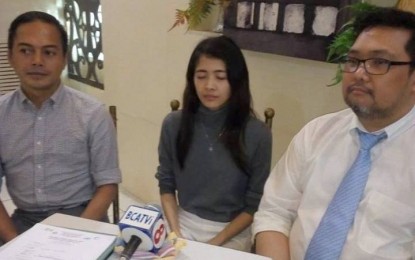
ACCESSIBILITY LAW. Architects for Accessibility (AFA) co-founders Peji Cipriano (L) and Rix Abordo (R) with Architect Elise Sophia Francisco advocate for strengthened implementation of the 'Accessibility Law' during a one-day audit training of the United Architects of the Philippines in Antique, Nov. 23, 2018. (Photo by Annabel J. Petinglay)
SAN JOSE DE BUENAVISTA, Antique – There is a need for local government units to come up with ordinances to support the Accessibility Law, the group of Filipino architects said on Friday.
This cropped up as the United Architects of the Philippines (UAP) conducted a one-day accessibility audit training among architects, engineers and municipal planning officers in this provincial capital in a bid to strengthen the implementation of Batas Pambansa 344 or the Accessibility Law.
Architect Rix Abordo said that advocating for accessibility is not just for persons with disability (PWDs) but for everyone as physical injury could happen to anyone, unexpectedly, thus the need for local measures.
“Provision of ramps and accessible toilets are just but basic needs,” he said.
Abordo cited the strict policy in Quezon City where a building owner could not renew a building permit if it is not compliant with the Accessibility Law.
Architect Peji Cipriano, also a resource person from the UAP Quezon City central chapter, said, they want to make the architects, engineers and planners “become aware of the law and participate in the advocacy for accessibility".
The Philippines is a signatory to the United Nations commitment to establish an accessible environment for persons with disability (PWDs), he noted. He also stated that the conduct of training forms part of their corporate social responsibility (CSR).
Abordo and Cipriano are co-founders of the group Architects for Accessibility (AFA).
Architect Elise Sophia Francisco, on the other hand, said that the accessibility audit is intended to improve existing buildings including the parking lots to make them barrier-free.
“Signages are very important so that the PWDs would know where they are,” she said. (PNA)
